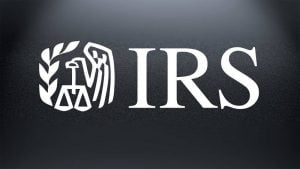If you are a small business owner, you are responsible for filing your taxes by a specific due date each year. The exact time for your business tax filing depends on your industry and business structure; nevertheless, no matter what type of business you run, you should be aware of the latest tax laws that could affect your business taxes.
Tax laws can be complicated and the IRS regularly makes that could affect how much your company pays in taxes, what deductions and credits you can list, and other details that could end up costing or saving you money.

Here are some points to think about regarding the latest tax laws so you can continue to be a responsible business owner.
The Tax Cuts and Jobs Act was initially passed in 2017, but the majority of the changes to the law take effect in the 2018 tax year. This is the tax return you will file in April. The changes are then set to expire in 2025 unless they are extended. The law effectively changed small business tax rates and the estimated payments you are required to make to remain compliant for the tax year.
The new law created a 20% qualified business income deduction, which helps business owners reduce their tax burden. Other deductions and credits have also been developed, including altered depreciation methods and increased options for expensing business property.
Other new rules include those for fringe benefits and like-kind exchanges. If your small business offers paid family leave for your employees, in addition to medical leave, your business may qualify for a new business credit.
The IRS makes these changes to the tax law to help self-employed individuals and small businesses understand and meet their obligations. In addition to sole proprietorships, the self-employed, and LLCs, other organizations that are affected by these new regulations include C-Corporations, farmers, and Schedule C filers, who were represented by independent and gig economy workers.
Here are other ways the TCJA can affect your business. Ensure you pay attention to any tax laws that pertain to your industry and type of business, whether you are a sole-proprietor, C-Corporation, or LLC.
The new IRS laws create a participation exemption system that allows certain types of foreign income to be taxed. The rules ensure the application of section 956 on the tax forms are consistent with the new laws and regulations. The law also seeks to reduce the amount determined under section 956 regarding domestic corporations and stock you own in controlled foreign corporations (CFCs).
If you own 10% of the value or voting rights in one or more CFCs, you need to include its global intangible low-taxed income as income that is taxable currently. This needs to be completed under the new laws, whether or not any amount is distributed to the shareholder.
You now have an extension of three years for the holding period related to obtaining carried interests. These are ownership interests in a partnership that share the net profits of the organization.
Carried interests are issued to investment managers in connection with services already rendered. In many cases, the interests are a result in the holding receiving capital gains, which are taxed at lower rates when compared to ordinary income.
The changes to the tax law that relate to like-kind exchanges only apply to real property and not exchanges involving intangible or personal property.
The new law places a limit on the amount of deductible business losses that organizations can claim are earned by non-corporate taxpayers.
If your business is affected by NOL or Net Operating Loss rules, you should be aware of new changes to those rules, as well. IR-2018-254 discusses the tax laws regarding Net Operating Losses. Ask your business tax professional to learn more.

The Treasury and IRS have mandated a cap of $10K on state tax and local tax deductions; however, the new law provides a safety net under section 162 that applies to pass-through or C-Corp entities to a 170(c) company in return for local tax credit or state tax.
The IRS now places a limit on the deductions that large businesses can claim for interest incurred. For larger businesses, the number of business interest expenses tend to be limited to interest income plus 30% of the adjustable income that is taxable.
The new tax laws make it so that businesses can add more expenses. Business owners can expense the cost of section 179 properties and can then deduct it in the year the property was placed in service. The law increased the maximum deduction from $500K to $1M. The law increased the phase-out threshold from $2M to $2.5M.
According to the IRS’s new tax laws, changes have been made on the new 100% depreciation deduction. The law states that businesses can write off the most depreciable assets in the year when they are put into service.
Rental property typically has a recovery period of 27.5 years; nonetheless, the law has now been changed so that the recovery period is from 40 to 30 years.
The new laws no longer allow deductions for various fringe benefits. Examples may include entertainment, recreation, amusement, membership dues for recreational or business clubs, and facilities used in conjunction with the above items, even if the activity is business or trade-related.
The new regulations also no longer allow expenses to be drawn that deal with transportation fringe benefits or any expenses relating to transportation for the purposes of commuting.
Also prohibited are cash and non-tangible personal property, as well as employee achievement awards and gift cards. In addition, special rules exist that allow employees to exclude achievement awards from their wages if the awards are considered to be personal property.
New rules from the IRS now suspend moving deductions for most small businesses. The suspension went into effect on December 31, 2017, and lasts until January 1, 2026. This doesn’t apply to active duty service members or those whose move is the result of a military order for a permanent location change.
If your business uses passenger vehicles, the new tax laws put dollar limits on the depreciation deduction for the year the vehicle is used in service and for each year thereafter.
If your business is ordered to make payments because of a sexual harassment or abuse case, you cannot make deductions for those payments on your business tax returns under the new IRS law.
Miscellaneous itemized deductions are suspended by the IRS that were previously subject to the 2% of the adjusted gross income limit. This means that the business standard mileage rate that was put into place before the TCJA cannot be used to claim itemized deductions for unreimbursed travel expenses through January 1, 2026.
If any wages were paid to qualifying employees for paid family and medical leave, your business may claim a business credit on those wages.
The IRS tax laws dictate that taxpayers must take the 20% credit over five years as opposed to the year when the building was placed into service. The law also eliminates the 10% rehabilitation credit for all buildings built before 1936.
You may qualify for a tax deduction if your business is a sole proprietorship, partnership, trust, or estate. The deduction is known as the Qualified Business Income Deduction, which allows businesses to deduct up to 20% of their qualified income plus 20% of the aggregate amount of real estate investment dividends, as well as partnership income.
The tax reform laws have changed how some taxes are calculated, such as estimated tax payments, transition tax on foreign earnings, and blended federal income tax. There have also been changes to the rules for withholding to ensure you’re withholding the right amount of taxes for your employees.
There have been rules under the new laws for accounting periods and methods of accounting for certain businesses. These include corporations that are required to change from cash methods to accrual methods of accounting.
The laws affect specific industries, such as Alaska Native American corporations, aircraft management services, farmers, ranchers, insurance companies, and Alaska settlement trusts. Also affected are life insurance companies, and companies that make beer, wine, and distilled spirits. Check with your tax preparation professional to determine if any of these changes to the tax laws could affect your business.
In addition to all the new tax laws and regulations, the IRS has made special provisions if you feel you have placed under a wrongful levy by it. You now have additional time to file an administrative claim or bring a civil action.
The IRS has also made it impossible to deduct penalties and fines if they were paid due to one or more law violations. There are new laws relating to Pension Plans, Employee Stock Options, and Health Savings Accounts.
While your business may not be affected by all of these new IRS tax laws, one or two might apply. It is important that you remain current on all applicable laws so that you can list the proper credits and deductions, and pay the right amount of tax to keep up with your business tax responsibilities. Failure to understand or know these laws is no excuse. The IRS won’t tolerate business owners filing the wrong forms or filling forms out incorrectly. The IRS particularly won’t like businesses underpaying their tax obligations.
That means you should take your time to learn and understand the tax reform laws that correlate to your industry and type of business so you can remain compliant with the IRS every year.
However, many business owners find the act of operating and expanding their businesses time-consuming. This lack of time makes it difficult to read and comprehend the new law changes, particularly those relating to the TCJA.
Instead of attempting to understand the complicated tax law, it helps to obtain the services of a skilled and experienced business tax professional. With business accounting performed throughout the year and a certified tax professional filing your business taxes on your behalf by the due date, you can ensure a proper tax return and that your burden is fulfilled without penalties or late fees of any kind.
Call SCL Tax Services in & near the Bronx, New York, serving business owners throughout the areas of Yonkers, Eastchester, Westchester and Mount Vernon for a free tax consultation for 15 minutes if you need help with your business taxes as they pertain to these new IRS laws.
We are here to relieve you of the tax pressure by offering a wide range of Tax Services In & Near Bronx, NY. If you need expert advice or need us to complete your taxes, we will provide it for you. We know you work hard, so we work hard to serve your needs.
Your time is valuable, which is why we are here for you.